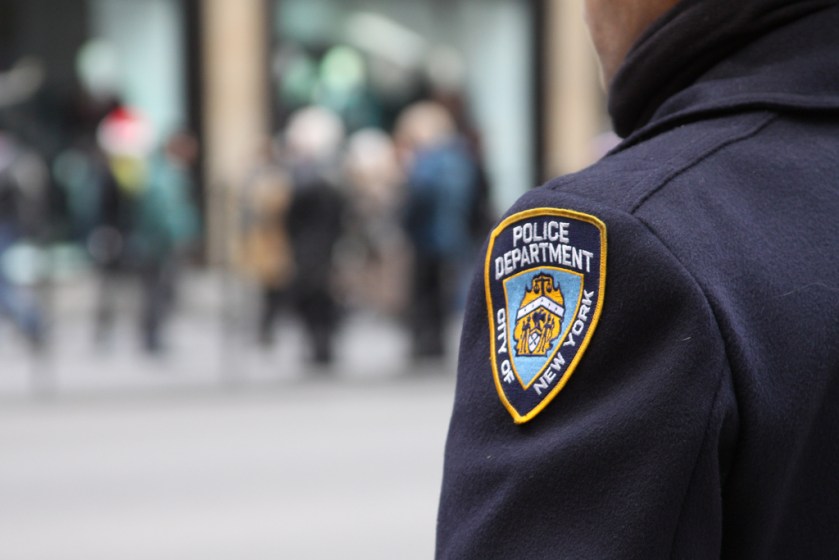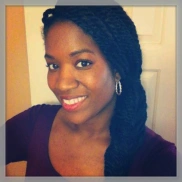As a mom of two, soon to be three boys, sometimes I find myself overwhelmed with anxiety about my sons’ safety as they grow older. My eldest son is 9 years old, and he is tall. He is often mistaken for 12 years old which is the same age as Tamir Rice, and one year younger than Tyre King, two children who were killed by police in separate incidents in Ohio. While I believe confronting the issue of police violence requires systemic change, I also know that I need to prepare my children to deal with the realities of police violence while we work towards change. I fluctuate between feeling resentful and resigned to this fact. To better prepare myself and my sons, I asked Thomas W. Higdon, Sr., a retired New York City Police Officer with 36 years of experience, for his advice on surviving a police encounter.
1. Describe your experience.
I served in the New York City Police Department (NYPD) for 36 years. For 25 years, I was a Supervisor or Commander in the Department. I patrolled some of the most violent precincts in New York City. I worked as a patrol supervisor in the rank of Sergeant as well as Lieutenant. I commanded various plain clothes units including the Anti-Crime (precinct violent crime unit), NYPD Gang unit, and Principle Crime unit in the Intelligence Division. I’ve taken various police investigation courses. I’m a graduate of the FBI academy. I also have a Masters in Criminal Justice from St. John’s University.
2. Some argue that most cops are good. In your opinion, is police brutality a national problem or a series of isolated incidents?
Are some cops good? Let me just say that most police officers are professionals. Do most officers go on patrol with intent to brutalize people? No; however, there are some officers who abuse their authority. Based on today’s climate, I would definitively say we have a national problem. The police are a reflection of the country. The country has a race problem and so do police departments. How do we change the heart of a racist? I believe only God can.
“Based on today’s climate, I would definitively say we have a national problem. The police are a reflection of the country. The country has a race problem and so do police departments.”
3. How do you feel like it should be addressed? Within police departments? By law makers? Federal agencies (for example, The Department of Justice)? Prosecutors?
The police departments cannot police themselves. It has to be an outside agency, independent of the jurisdiction in which the department operates. I strongly believe federal agencies and outside prosecutors are necessary.
4. I often find myself stuck on where to start when I begin to talk to my children. On one hand, I want them to be able to trust that the police exist to protect them. On the other hand, I am afraid that if they interact with police, they may be unsafe. Where do you feel the conversation begins for parents?
I believe that people must understand that the police department is comprised of men and women who are trained professionals yet they come to the job from various backgrounds and with plenty of bias. We should educate our kids at an early age, teaching them right from wrong, and their rights as citizens. While on patrol early in my career, people would come to me on the street with their kids and present me as a disciplinarian. That would upset me. I felt that it was one of the reasons young people disliked cops. Parents displayed us as bogeymen.

5. What should they know about interacting with police?
Remain calm no matter what the circumstance and follow the instructions of the officer(s). Know your rights/laws concerning search and seizure as well as your right to remain silent (read more about your Miranda rights here). The officers are not your friends. They are law enforcement officers trying to solve cases. There are plenty innocent people who are in jail that haven’t committed crime.
6. What suggestions would you have for remaining safe during an interaction with police?
Stay calm and follow instructions. Never run or move unnecessarily. I often told my sons, try to remember the officer(s) name and shield number without asking for it, if possible. Also, use technology available to you, i.e. live stream. Just keep in mind, the officer may very well be aggravated by it.
7. Often deadly police interactions begin when someone is “suspected” of a crime or misidentified. How would suggest someone handle being stopped by police when mistaken for a crime they did not commit?
Cooperate, cooperate, cooperate. Once you have identified an officer as being one, he has the authority to question you if he has reasonable suspicion that a crime has been committed and the suspect fits your description. Unfortunately, in Black and Latino communities, this has been abused. Black and Latino communities are patrolled differently from white communities. Laws are enforced more aggressively. For example, a disorderly conduct offense in a White community is treated as a violation. The same scenario in a Black community would lead to a more serious charge, e.g., riot.
“Remain calm no matter what the circumstance, and follow the instructions of the officer(s). Know your rights/laws concerning search and seizure as well as your right to remain silent. The officers are not your friends. They are law enforcement officers trying to solve cases. There are plenty innocent people who are in jail that haven’t committed crime… [L]ive to fight another day!”
8. Does your advice change for someone stopped in a car or on foot?
Basically the same, cooperate. However, when an individual is in a vehicle he is not completely visible so he/she must make every effort to stay as still as possible (don’t move unnecessarily) and keep your hands where they can be seen at all times. Also, only speak when you are spoken too.
9. In today’s climate, what would you tell your sons about dealing with police?
Remain calm no matter what and cooperate, cooperate and cooperate. As I said earlier identify the officer(s) as best you can, and live to fight another day!
10. Any other advice?
The best advice I would give a parent is to raise your kids to respect authority, regardless of the individual in the position. Teach them morals and empathy. I believe only God can change the hearts of man and in order for God to do that we must have a relationship with Him.
***
About The Author
Faye McCray is an attorney by day and writer all the time. Her work has been featured on My Brown Baby, AfroPunk, AfroNews, For Harriet, Madame Noire, Black Girl Nerds, Black and Married with Kids, and other popular publications. Faye also has a number of short stories and a full length novel available for purchase on Amazon. Most importantly, Faye is a proud wife and mother to three beautiful and talented young boys who she is fiercely passionate about raising. You can find Faye on Twitter @fayewrites and on the web at fayemccray.com.
attorney by day and writer all the time. Her work has been featured on My Brown Baby, AfroPunk, AfroNews, For Harriet, Madame Noire, Black Girl Nerds, Black and Married with Kids, and other popular publications. Faye also has a number of short stories and a full length novel available for purchase on Amazon. Most importantly, Faye is a proud wife and mother to three beautiful and talented young boys who she is fiercely passionate about raising. You can find Faye on Twitter @fayewrites and on the web at fayemccray.com.

